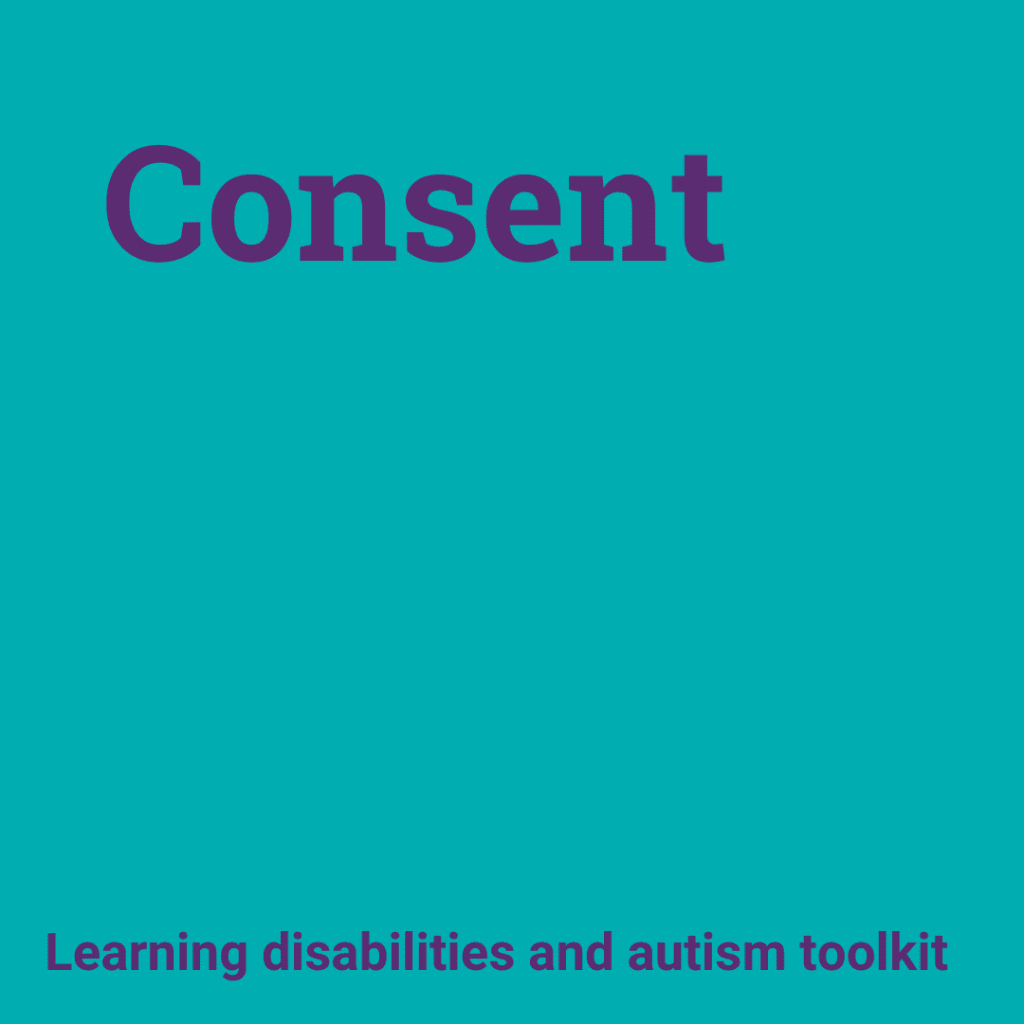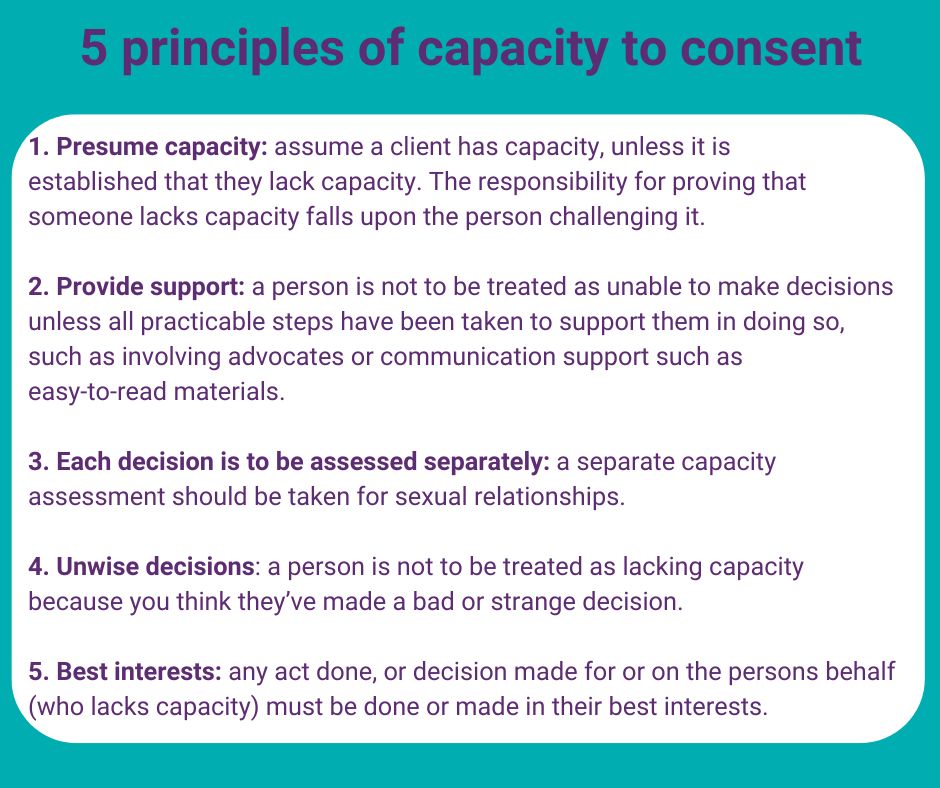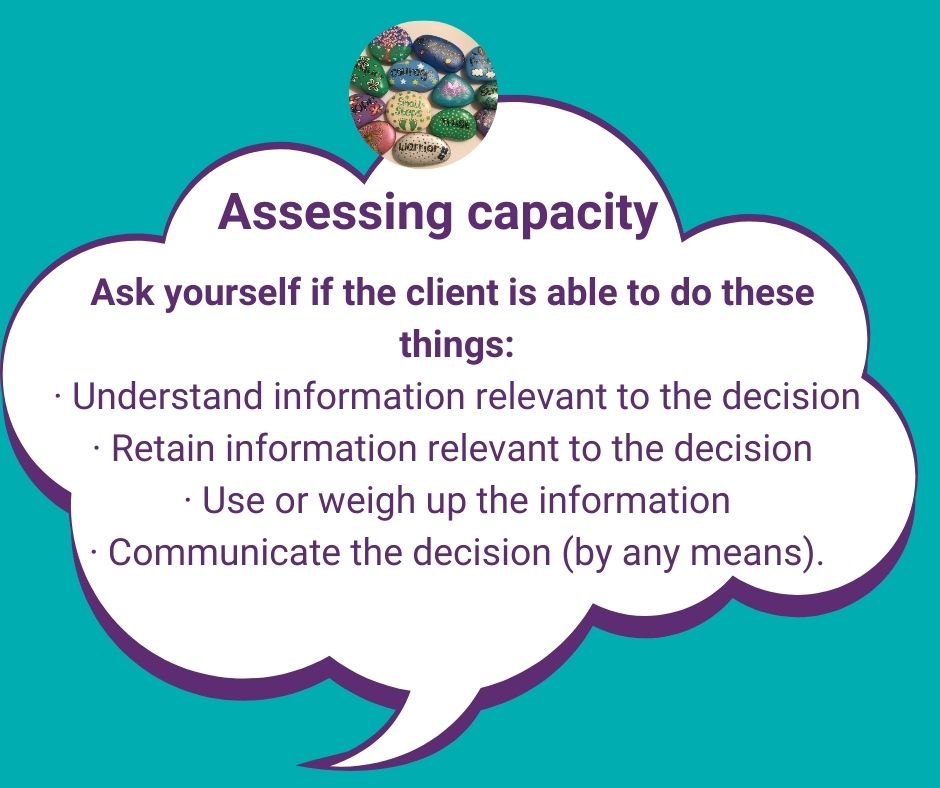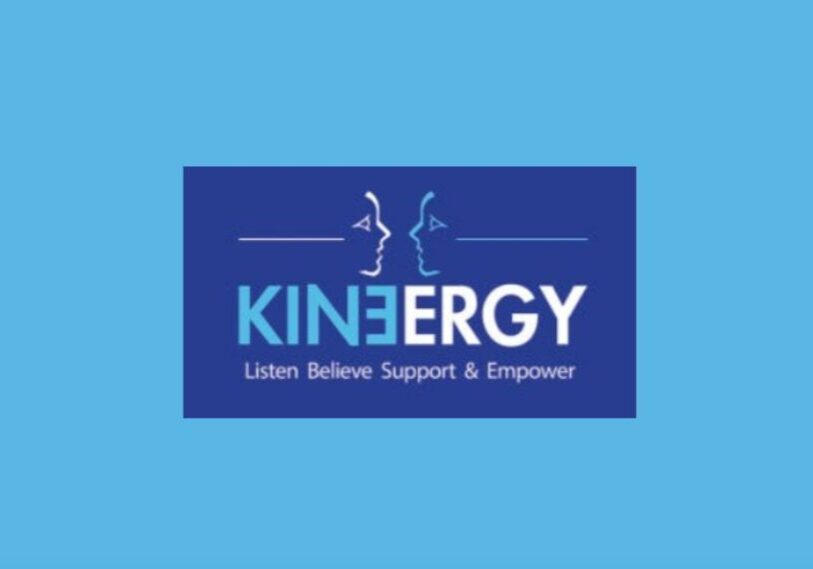
Consent – what it is and how to talk about it
Consent means that all people involved in any kind of sexual activity agree to take part by choice. They also need to have the freedom and capacity to make that choice. Those who support or work with people with learning disabilities and autistic people often have concerns around consent and the mental capacity act.
Sexual Consent – what does it mean?
A person consents if he or she agrees by choice to the sexual activity and has the freedom and capacity to make that choice.
Sexual Offences Act 2003
There are three main considerations in judging whether a sexual act is consensual or a crime:
- are both people old enough to consent?
- do both people have the capacity to consent?
- did both people agree to take part?
The age of consent is 16 years old, anyone younger than this cannot consent to any form of sexual activity.
A person cannot consent to sex if:
- they are asleep
- they are drunk or have taken drugs
- they do not understand what sex is or what is happening
- they have been threatened, coerced, and do not feel safe to say “no”.
Consent must be actively sought, given freely by someone who has the capacity to consent, and can be withdrawn at any time.
The law also tells us that if you give consent to one type of sexual touch, you do not have to consent to all types of sexual touch.
Explaining consent
Many autistic people and people with learning disabilities can show they have capacity to make their own decisions about having sex.
Talking about the meaning of consent with autistic people and people who have learning disabilities might mean adapting your language and/or using the right tools/resources to suit their needs and abilities.
One way of describing consent simplistically could be:
An agreement to do something between people that both people understand and are happy with.
To empower people with learning disabilities and/or autism to make decisions around consensual sexual activity and relationships, it is important to provide information and have open discussions on sex and relationships. You can do this by:
- providing accessible information that shows what sex is and the mechanics of the sexual activity
- discussing and educating about potential risks such as pregnancy and STIs
- having open conversations around how to show consent to a future partner, how to confirm your partner is consenting, and how to withdraw consent.
Capacity for sexual relations and the Mental Capacity Act (2005)
The Mental Capacity Act (2005) is important legislation for practitioners who are providing support or services. We should assume the person we are working with has capacity to make decisions and then use professional legislation rather than personal judgments to consider whether the person is making a consensual decision around sexual activity.
All health and social care staff are responsible for assessing vulnerable adults’ capacity to make specific decisions. When thinking about mental capacity, we can apply these five core principles to our work.


Capacity for sexual relationships
If you are working with an autistic person or person with learning disabilities and you want to assess whether they have capacity for making decisions around sex you can ask if they understand:
- that they have a choice whether they engage in any sexual activity
- the mechanics of any sexual act they want to take part in, for example what is it, what does it involve
- that they can change their mind at any time and say no
- that the person they are having sex with must be able to consent before and during the sexual act
- the potential consequences for example sexually transmitted infections, pregnancy
- the risk from pregnancy or sexually transmitted diseases can be reduced through contraception.
If the person you are supporting has capacity to weigh up and understand all the above information, it can be documented that they have capacity to enter a sexually active relationship.
It is important to recognise that a person’s capacity can grow and change through appropriate education, so capacity is not a fixed state of mind.
If someone doesn’t have capacity
If the person does not have capacity to make consensual decisions around sex and safety, this will need to be addressed through the court of protection. Social workers, safeguarding teams, family members, and local authorities cannot stop people from having sex.
Within the Mental Capacity Act (2005), sex is an ‘excluded decision’ This means that it cannot be deemed as in someone’s best interest.
No one can consent to sex on behalf of someone else. If someone lacks capacity, it would be unlawful for another person to engage in sexual activity with them.
If you are unsure, always seek advice from the court of protection
on 0300 456 4600 or email courtofprotection@justice.gov.uk
Useful resources
Extra resources
The latest from our news and blogs

Be the change: how to be an Active Bystander
We can all be bystanders. Every day events unfold around us. At some point, we will register someone in danger. When this happens, we can decide to do or say something (and become an active bystander), or to let it go (and remain a passive bystander).

Kinergy closure statement
We are deeply saddened by the closure of Kinergy, an organisation that has provided invaluable support to survivors of sexual violence for nearly 30 years.

The power of creativity in healing: songs of survival
Recently, two people reached out to us independently, each having recorded a song about their personal experiences of sexual violence. Their powerful and deeply moving songs serve as a testament to resilience, and we’re honoured they asked us to share their work.










